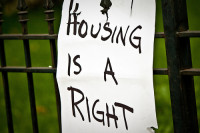Let’s face it… it’s easier to ignore a text than a real person on the other end of the phone. Technology isolates us. This makes us more likely to curl up in a ball instead of sharing our emotional hairballs with each other or a therapist.
You know that feeling — your phone buzzes, urging you to check it, and you can’t resist. The average adult checks their phone 50 to 300 times daily. But, if we don’t stay connected, we are in deep doo doo. It’s not that machines are bad. We do connect with technology; in fact it’s convenient to arrange a meeting by text when we’re busy or tired.
It’s just that we humans need closeness. And we weaken our political power as well if we do not connect, deal with our differences and drop our judgments.
If we don’t have real conversations we cut out a part of our authentic life. And more importantly, we cripple our need for a deeper connection to others and deaden the urgent need to raise our voices in the political arena. What’s more, neglecting our social relationships is actually shockingly dangerous to our health.
So, keep on discussing your life stories with others, because we lose both empathy and our own collective strength if we isolate. We tend to put on a happy face. But, if we are ashamed of our internal battles, we also withdraw from each other, which weakens us and depletes our support systems. We simply can’t cure problems if we don’t weave a solid ground of community.
Self-reflection and some degree of solitude are important parts of a healthy life. I get that. But somewhere along the line we seem to have gotten the balance wrong. Studies show that good social relationships are the strongest, most consistent predictor of a happy life. Both joy and sorrow are everyone’s reality, so don’t withdraw when you are sad or confused. Let people know your needs.
I’m not suggesting you squabble with people or blurt out your problems when the timing is inappropriate. But, it’s also important to be authentic and build relationships.
The other day I had a discussion with a woman I never thought I liked too much. To my surprise she had a fascinating history. I had imagined she was a fuddy-duddy and too conservative. But, it was a meaningful conversation. It taught me, once again, that I’m an itty bitty judgmental sometimes. My mind plays tricks on me when it comes to inner narratives about who is who. I suspect that we all do this too much and really, we just want to belong.
Whether we’re talking about friendship, coupling, community, family or work, connection is essential to our lives. In my therapy practice, I find that couples shift their experiences when they open up to each other. They begin to have new kinds of conversations and their narrow exchange of blame and silent distancing slows down.
Sue Johnson writes, in “Hold Me Tight,” “This need for safe emotional connection to a few loved ones is wired in by millions of years of evolution. Distressed partners may use different words but they are always asking the same basic questions: Are you there for me? Do I matter to you? Will you come when I need you, when I call?”
We once bowled in leagues. But no longer. In “Bowling Alone,” Robert Putnam states: “This seemingly small phenomenon symbolized a significant social change.” He shows how social bonds are the most powerful predictor of life satisfaction. “Communities with less social capital have lower educational performance and more child suicide. Social capital is also a strong predictor of crime rates, health and quality of life.”
We don’t need more barricades between us; we need more understanding and less prejudice. Most of the time, walls don’t work. No matter what Donald Trump says.





Be First to Comment